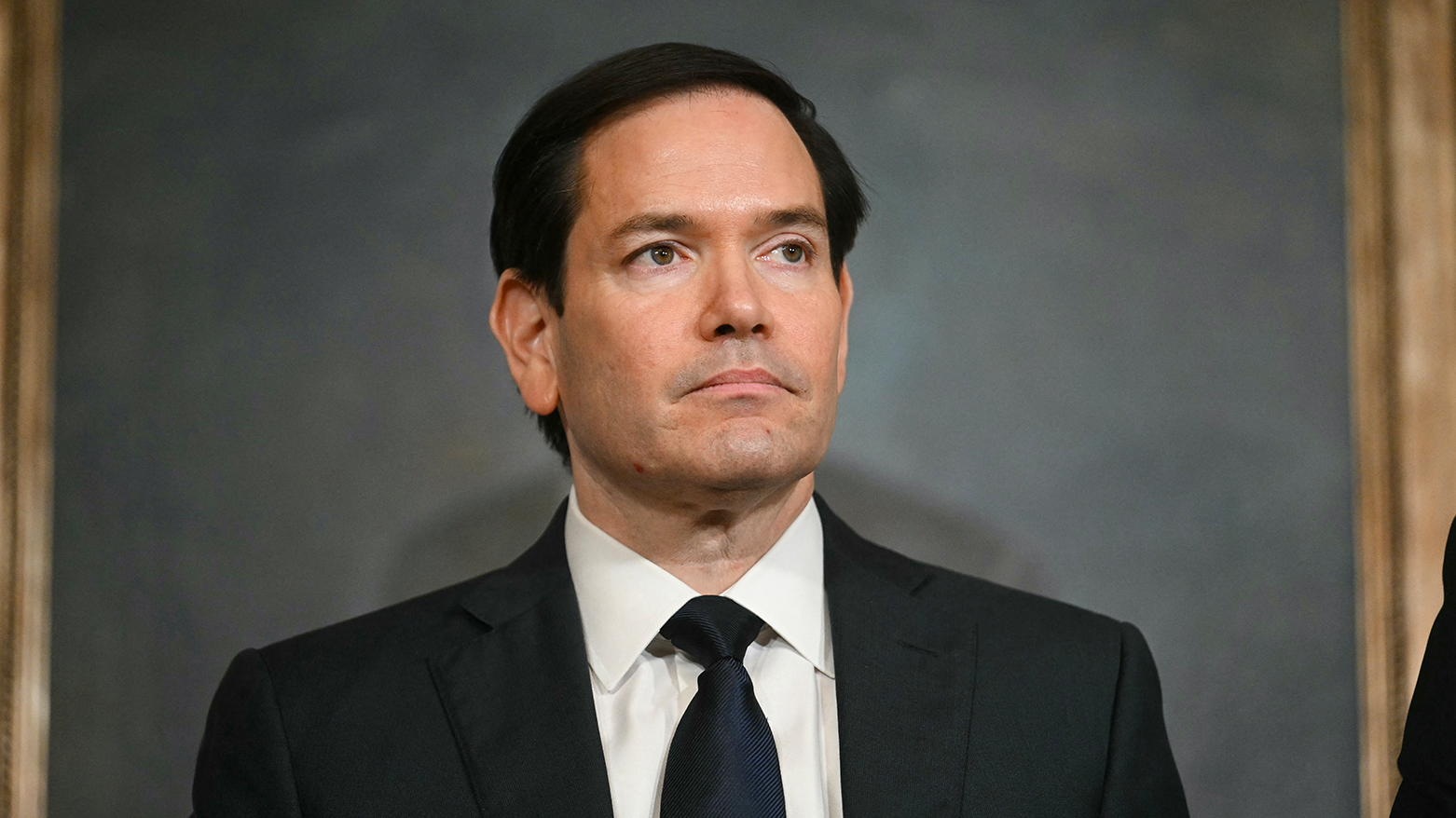Marco Rubio Says Ukraine-Russia Conflict Is ‘Not Our War’
Secretary Rubio stated the U.S. views Russia-Ukraine as "not our war" while mediating talks. He ruled out sanction relief for Moscow but warned new penalties could derail fragile peace efforts, stressing any deal requires mutual concessions.

ERBIL (Kurdistan24) – U.S. Secretary of State Marco Rubio on Sunday declared that the ongoing war between Russia and Ukraine is “not our war,” underscoring that Washington’s role is to facilitate peace talks rather than become directly entangled in the conflict.
His remarks came during an interview with CBS’s Meet the Press, following President Donald Trump’s high-profile summit with Russian President Vladimir Putin in Alaska.
Pressed on the administration’s evolving stance, Rubio emphasized that while the United States has been steadfast in its support for Ukraine, it is not a belligerent in the war.
“And here’s the thing to remind everybody. And when the president says this is not our war, but let’s be frank, this is not our war. The United States is not in a war. Ukraine is in a war. We’ve been supporting Ukraine. We happen to be in the role of the only country in the world with the only leader in the world that can actually bring Putin to a table to even discuss these things,” Rubio said.
He added that while the administration advocates for a ceasefire as a potential step toward ending hostilities, the ultimate aim remains a comprehensive peace deal. “What we ultimately are aiming for is an end to this war,” he stressed.
Responding to questions on whether Trump has softened his stance toward Moscow, Rubio maintained that Russia continues to face “very severe consequences.”
“There’s not a single sanction that’s been lifted. Not one. They’re facing all the same sanctions that have been in place today. All the American support continues for Ukraine,” he said, noting that additional sanctions remain an option but could derail negotiations.
“The minute we take those steps, there is no one left in the world to go talk to the Russians and try to get them to the table to reach a peace agreement,” Rubio cautioned.
Rubio acknowledged that ceasefires are fragile and often collapse quickly, pointing to global conflicts where temporary truces failed. “Ceasefires can fall apart very quickly, especially after a three-and-a-half-year war like what we’re facing now,” he said.
Instead, he argued, the administration is prioritizing an enforceable and enduring peace deal. “We don’t want a ceasefire for a few weeks followed by another round of bloodshed. We want a peace deal that ensures this war ends — and does not return.”
The Secretary of State admitted that negotiations remain arduous, as both sides hold entrenched demands.
“Everybody goes into a negotiation wanting 100 percent of what they want. That includes Ukraine, but obviously the Russians. And the only way to reach a deal … is for each side to get something and each side to give something,” Rubio explained.
Asked about reports that Moscow seeks to retain control of roughly 20 percent of Ukrainian territory, he acknowledged that President Putin has made such demands but insisted Kyiv will not be pressured to concede. “If there’s going to be a peace deal, it’s not going to look like that,” he said.
Rubio confirmed that discussions are underway about providing Ukraine with NATO-style security guarantees as part of a potential settlement.
“One of their fundamental demands is that if this war were to end, they have to make sure this never happens again. They don’t want to get reinvaded,” he said, adding that any framework must be “verifiable, enforceable, and enduring.”
The interview came just a day after Trump hailed his Alaska talks with Putin as a “great and very successful day,” highlighting that subsequent conversations with Ukrainian President Volodymyr Zelensky and European leaders have laid the groundwork for a possible peace agreement.
Trump announced that Zelensky will meet him at the White House on Monday, with a subsequent meeting with Putin potentially on the horizon. “If all works out, we will then schedule a meeting with President Putin,” Trump wrote on his Truth Social platform, adding that such steps could “potentially save millions of lives.”
European leaders, including NATO Secretary General Mark Rutte, French President Emmanuel Macron, German Chancellor Friedrich Merz, British Prime Minister Keir Starmer, and European Commission President Ursula von der Leyen, also held late-night calls with Trump and Zelensky following the summit to coordinate positions.
Rubio, who previously described Putin as a “habitual liar,” was asked why Washington believes Moscow would honor any deal. He responded that enforceable mechanisms would be central to any agreement.
“What’s important here is actions, not words. Not paper. Not documents. Those are elements of a deal, but they have to be enforceable, verifiable, and enduring,” he said. “Otherwise, it actually makes things worse.”
As the war nears its fourth year, with Russia launching over 6,000 missiles and drones in July alone — the highest monthly total since the invasion began — the urgency of securing a resolution is mounting.
Rubio concluded that while the path ahead remains uncertain, the administration is committed to pursuing every diplomatic channel. “Is it possible? I don’t know. But we’re going to try. Because this war doesn’t get better; it gets worse. And it needs to stop.”
